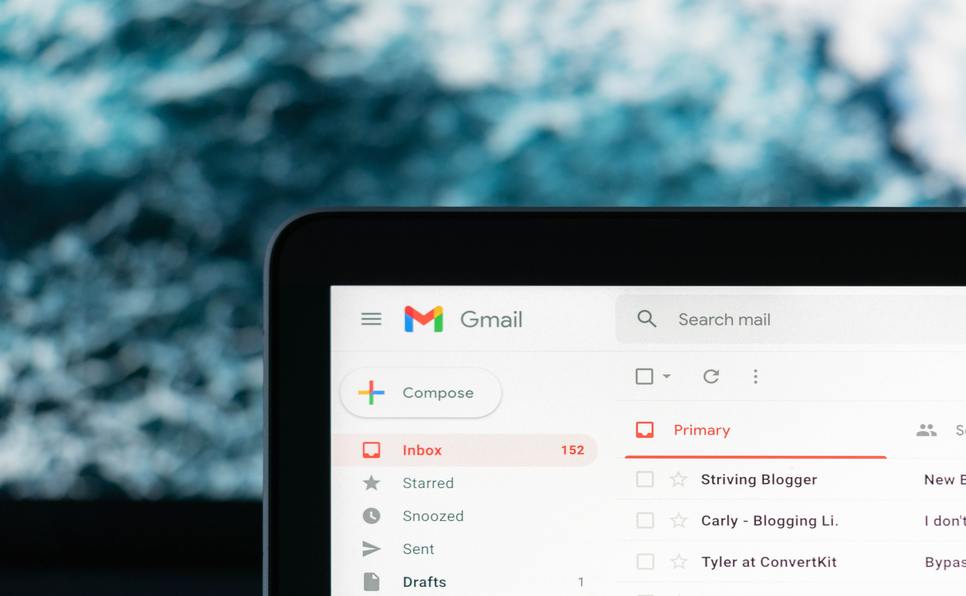The art of writing a great query letter comes down to remembering its sole purpose: to get a literary agent to request to read more. That’s it. The most common query letter mistakes stem from writers forgetting this singular goal.
I’ve helped a lot of writers work on their query letters over the years, and the most frequent errors I see are when writers try to reinvent the query letter format to achieve something beyond this basic goal. Or when they start panicking about “selling themselves” to a total stranger.
Look, here’s the deal: literary agents are busy humans. They are looking for ways to clear their inbox of clutter, while somehow discovering a diamond in their slush pile. They don’t owe you anything. So if you show that you’ve made query letter mistakes, it makes it very easy for them to say no to you.
However, once you know the query letter mistakes to avoid, and once you start to view the query letter as a nifty sales tool for you and your work rather than a big, scary thing for big, scary literary gatekeepers, you can up your chances of getting them to request to read more.
Here are 21 of the most frequent query letter mistakes that literary agents hate:
1. Querying your manuscript before it’s ready
Please, oh please, get your manuscript in the best state possible before you start querying i.e. finish it to the best of your ability, then get your beta readers to tear it up, then set it on fire, then write it again from the ashes. While it’s true that literary agents can take their sweet time in getting back to you, you could also get a very keen agent who wants to read your work YESTERDAY. How silly are you going to look coming back to them and saying, “Well, it’s not quite ready for your review…” The literary agent will think you unprofessional: not exactly the best start to a working relationship. And they’ll likely not want to stick around and wait (remember, busy humans).
2. Sending your manuscript to the wrong agents
Every agent is looking for something different. Manuscript Wish List, or MSWL as it is more commonly known, is a great resource for learning agents’ tastes. You can only send your query to one literary agent at an agency, so be sure to send it to the one who is actually interested in and represents your genre. Additionally, some agents may not even be open for queries; check their websites. There’s nothing worse than hitting send on your query only to learn that you blew your shot.
3. Getting their name wrong
Are they a Ms. or Mrs.? Do they like being addressed by their first name, last name, or both? Have you double-checked the spelling? A misspelled name or an incorrect gender assumption is one of the biggest query letter mistakes you can make. Think about how you feel when someone gets your name wrong. Not great, huh? There’s nothing that screams “sloppy” more than screwing up the basics.
4. Getting too personal
While it’s encouraged to include a personalized opening line to say why you’re querying them, please keep it professional. Don’t say that you’re querying them because you’ve been obsessively monitoring their tweets for months, and your boyfriends wear the same cologne, and you happen to be driving past their house—and hey, have they read your query yet? An agent is not your friend. They are not even an acquaintance. They are an industry professional. And you are trying to impress them enough so that they want to read your book.
5. Ignoring their submission guidelines
All agents will clearly identify specific submission guidelines on their websites. These guidelines aren’t there just for fun, or to be ignored. An agent has taken the time to create these; ignoring them just shows you can’t be bothered to respect their rules. If a literary agent tells you to paste the first 10 pages in the body of an email under your query letter, don’t send the first 50 pages as an attachment. Provide exactly what they are asking for. Don’t think it would be nice to give them a bit extra. It isn’t, it’s a headache, and it’s a sure-fire way to get an instant rejection.
6. When your query letter is the wrong length
The rules on how long your query letter should be are very simple: one page, single-spaced, and at the sweet spot of somewhere between 250 and 350 words. If your query letter is longer than this, you need to edit it down. If it is shorter, it is too short. If your query letter is too long or too short, an agent will think you haven’t bothered to follow the convention and they simply won’t read it.
7. Writing your query letter in the voice of your characters
Writing a query letter isn’t a craft exercise; it’s a marketing one. Don’t try to be cute by writing in the voice of one of your characters. Not only is this annoying and hugely distracting, the agent hasn’t read your book yet. They don’t know your characters, and they won’t care to hear their voices. It’s just silly. Avoid.
8. When your query letter is missing a hook
A query letter hook is the most critical part of your sales pitch. You need a great hook to get a literary agent to read on, fall in love and ultimately, champion you through the long and winding road to publication. You should be able to sum up your book’s concept or main idea in a single line. Sometimes called a tagline, logline, shoutline, premise, mission statement, or elevator pitch, the query letter hook is the singular fastest and most impactful way that you can communicate what your book is all about. If you can’t summarize in a single sentence what your book is all about, then you aren’t ready to query.
9. When it’s all summary, and no substance
A query letter is not a synopsis. One of the most common query letter mistakes I see is just: this happens and then this happens and then this happens…um, great. That’s a synopsis. But that’s not selling your story. Save the long, extensive plot exposition for your synopsis and instead, really think about substance of your story: where’s the heat? The conflict? The character arcs? What’s at stake? You don’t need every little detail or scene. This is particularly true for sci-fi and fantasy books, where world-building can take up unnecessary room in an already tight space.
10. When it’s littered with mistakes
Since you’re a writer, there’s a basic expectation that you know how to spell and have a good grasp of grammar. Ensure your query letter is grammatically robust and error-free. Believe it or not, even a single typo could be enough to put an agent off. Why take that risk? Triple-check everything. And do it one more time after that. If you can, get a trusted eye or two on it. Again, ensure that the basics are covered.
11. When it’s vague
Your concept should be instantly clear, efficient, and succinct, while your language should be specific and straightforward. Bad writing is often vague, superfluous, and fails to tell its reader anything. And this isn’t just any old writing; this is marketing copy. Make it tight.
12. When it works too hard
Literary agents are smart. They know how to read and interpret query letters. There’s no need to spell out the story, or overexplain, or overstate your experience, or broadcast, or hammer home the message. It’s really off-putting and can come across like you think they’re stupid.
13. Bragging
Your query letter bio is the place to establish any credentials that show why you are the best person to write this specific book. It is not the place to name drop, or talk about how another agent or literary professional said they’d be crazy to miss out on signing you, or how you have more potential than a famous published author, or how you are more talented than a famous published author. These are just unfounded opinions. They won’t convince an agent of anything other than your arrogance. Besides, bragging is gross.
14. Subjectivity
Similarly, don’t talk about how you’ve always dreamed of becoming a published author, or how your schoolteacher said you had talent, or how successful your partner thinks you can be, or how your kids drew a picture of you and called you an author, or how much you think your writing style has improved recently, or how much money you spent on writing workshop applications, or how much time and effort went into writing your manuscript. These are subjective opinions. Just stop. An agent doesn’t care.
15. Insecurity
Conversely, DO NOT APOLOGIZE. Never say you’re sorry for disturbing a literary agent. Don’t talk yourself down, and never refer to it as, “my little book”. It will come off as neurotic and negative. A literary agent wants to work with a writer who believes in themselves and their work as much as they do.
16. Complaining
Just don’t! An agent doesn’t want to hear about how difficult the industry is to break into, or how many rejections you’ve had, or how there’s no money in writing (never talk about money in your query letter). It’s not a good look. Don’t complain in your query letter, social media, or elsewhere; it will certainly come back to bite you. The publishing business is the publishing business. If you can’t handle it, don’t be a writer. Period.
17. Weirdness
Needless to say, don’t be weird. Weird can cover all bases: weird fonts, colors, comments, jokes, mentions of race, religion, or politics, dollar amounts for any reason whatsoever, photos attachments, Clip Art, animated gifs, diary entries, threats, trolling, harassment, stalking or anything else that a) makes you look unprofessional/borderline unhinged, and b) could cause the reader discomfort is a no-no. A literary agent I know said she once received underwear in the mail. I mean…NO! A query letter is a professional marketing tool send by writing professionals to publishing professionals. So, be professional.
18. Crazy comps
“Comps” are comparisons to novels that are similar to yours so the agent has a good idea of how they would promote your book in future. Don’t compare your book to a bestseller, or say it’s “the next,” or claim it’ll have a reach bigger than the Bible. You’re not a fortune teller. If you pick a couple of interesting, relevant books (even TV shows or movies can be acceptable) that were released in the past five years, you’ll be golden. And make sure you’ve actually read those books!
19. Wild word counts
This one is a bit more subjective, but a good query letter includes a word count that is commensurate with the genre that you’re querying in. If your book is 5,000 words, or 200,000 words, it’s likely to get rejected. The sweet spot for adult fiction should be somewhere between 80,000 and 100,000 words; other genres such as children’s picture books (lower) and epic fantasy (higher) can vary.
20. Unruly titles
Your book title can be changed later down the line, but you really don’t want to lead with something overly long, waffly, or pretentious. It should be a minimum requirement, but you need to demonstrate to a literary agent that you’re capable of coming up with a captivating title for your book. Because, y’know, if you can’t even do that…
21. Giving away the ending
What’s the point in reading it, now?
Recommended reading
Here at Aspiring Author, we love recommending bestsellers and fawning over hot new releases. On this real time recommended reading list, you will find a list of top rated books on the publishing industry, craft, and other books to help you elevate your writing career.









